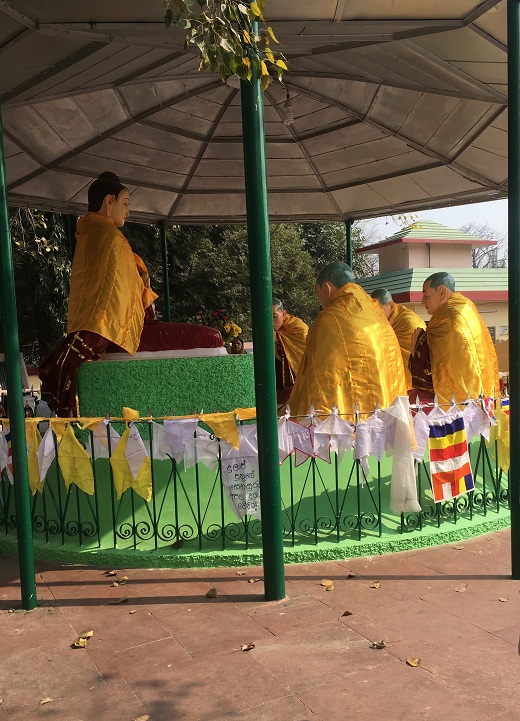The whole process of yoga, including study as well as guidance in all the practices, is supported by teachers. Spiritual teachers are among the most venerated professionals in the world, and rightly so. A human teacher is a necessary component because having walked the path already, they can guide us in the right direction, help us avoid pitfalls, and generally make our journey more efficient and effective.
That said, gurus and teachers who abuse their power and engage in exploitation have been unveiled and widely denounced by the yoga community and elsewhere. In response, some people are inclined to entirely reject gurus and the notion of needing a teacher at all, relying solely on inner guidance.
Before going any further with this topic, take some time to consider your current beliefs about gurus and teachers. Take a moment to pause, contemplate, and write down answers to any of the following:
– When you hear the word guru, what comes to mind?
– What role have teachers played in your life?
– Who or what have been your greatest teachers, and why?
——————————————————————————–
What is a guru really? What is their role on the path of yoga? An often-given definition of guru is whatever takes one from the dark to the light. The guru is that which takes you from ignorance to knowledge, concealment to revelation. The guru is whoever or whatever guides you in the journey of yoga.
SS 2.6 gururupāyaḥ
Guru: guru
Upāya: method or means
The guru is the means
We know the value of a teacher, in any field of knowledge, as someone who takes a student from a place of not understanding to a place of knowledge. This applies to everything from cooking to car repair to art and, of course, any academic field. We rely on experts to educate us. As Śiva Sūtra 2.6 clearly states, teachers are a primary means to knowledge. We can certainly teach ourselves to some degree—and there are rare cases of spontaneous knowledge, such as child prodigies—but it’s generally more effective and efficient to learn from a teacher.
The one primal guru that is Consciousness itself appears in many forms. Human teachers who can access this Consciousness act as conduits for the highest knowledge. The tradition differentiates between different types of gurus, which are forms of the sadguru or sat–guru, referring to the “true teacher.” The guru can be an enlightened spiritual master, but another way to think of the sadguru is as the underlying higher Consciousness that can guide us, if and when we choose to listen to it. This is where we get the idea that guru is within—because ultimately it is.
But let’s be clear: Who are you consulting when you turn within? We can’t delude ourselves into thinking that our everyday neurotic self is the best counsel to seek because this has the potential of reiterating all of our old patterns and ways of being. It is not moving us from the dark to the light and could simply reinforce our ignorance. So before relying solelyu on insight, we must first clarify our individuality to create access to the wisest self. And usually, the means to do so (such as practices like meditation) come through a teacher.
Eventually, as we move farther along the path of yoga—and especially as we meditate more—our access to, and clarity of, the inner Self becomes greater and is, therefore, a more reliable guide. In the meantime, we must be careful not to delude ourselves. This is why it’s suggested that in addition to consulting the inner guru, to verify insights with both the texts and teachers.
A consistent message I’ve received from my teachers is that the time of the mega-guru is over. Instead, what is now emerging is a larger number of teachers, each working with smaller groups, quietly creating shifts in consciousness that eventually will reach a critical mass. For this to be successful, of course, the community members have to be actively practicing and studying, not just being passive recipients of the teachings. Each must make the effort required to understand and apply the teachings, so that what they offer each other has authenticity.
REFLECT AND EXPLORE
– How have you learned about yoga and meditation? Consider what has influenced you, including particular teachers, lineages, other people, books, etc.
– Do you favor learning from teachers, the traditional texts, or from listening to yourself? How has that worked?


